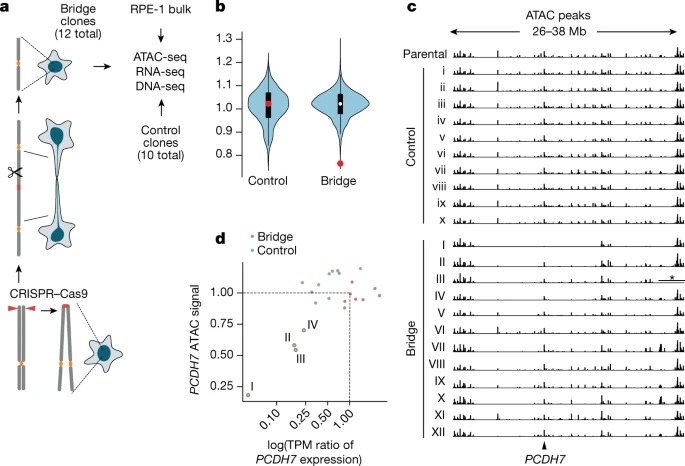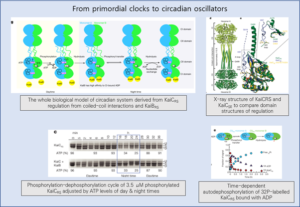nuclear architecture의 aberrations으로 인한 Heritable transcriptional defects.

Abstract
chromatin의 epigenetic state의 plasticity로 인한 Transcriptional heterogeneity는 tumour evolution, metastasis and drug resistance에 기여합니다. 그러나 이러한 epigenetic variation을 일으키는 메커니즘은 불완전하게 이해되고 있습니다.
여기서 우리는 암에서 흔히 볼 수 있는 nucleus의 aberrations인 micronuclei and chromosome bridges을 heritable transcriptional suppression의 원인으로 확인했습니다. long-term live-cell imaging and same-cell single-cell RNA sequencing (Look-Seq2)을 포함한 여러 접근법을 조합하여 micronuclei에서 chromosomes 내 gene expression 감소를 확인했습니다. heterogeneous penetrance를 통해 이러한 gene expression의 변화는 micronucleus의 chromosome이 정 normal daughter cell nucleus에 re-incorporated된 후에도 유전될 수 있습니다. 이와 함께 micronuclear chromosomes는 aberrant epigenetic chromatin marks를 획득합니다. 이러한 defects는 single cells에서 clonal expansion 후 chromatin accessibility가 variably 감소하고 gene expression이 감소하면서 지속될 수 있습니다. Persistent transcriptional repression는 현저하게 long-lived DNA damage와 밀접한 관련이 있으며, 이로 인해 설명될 수 있습니다. 따라서 Epigenetic alterations in transcription은 본질적으로 hromosomal instability 및 nuclear architecture의 aberrations과 연관되어 있을 수 있습니다.

